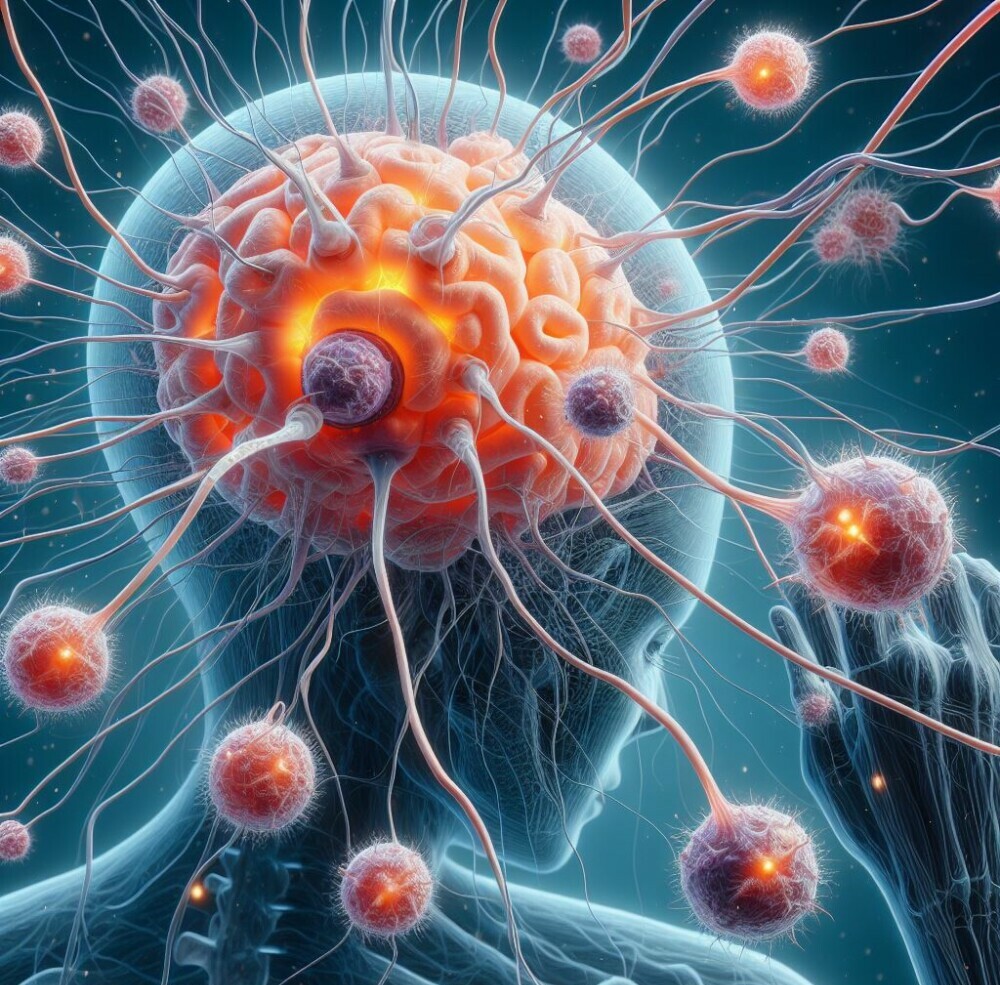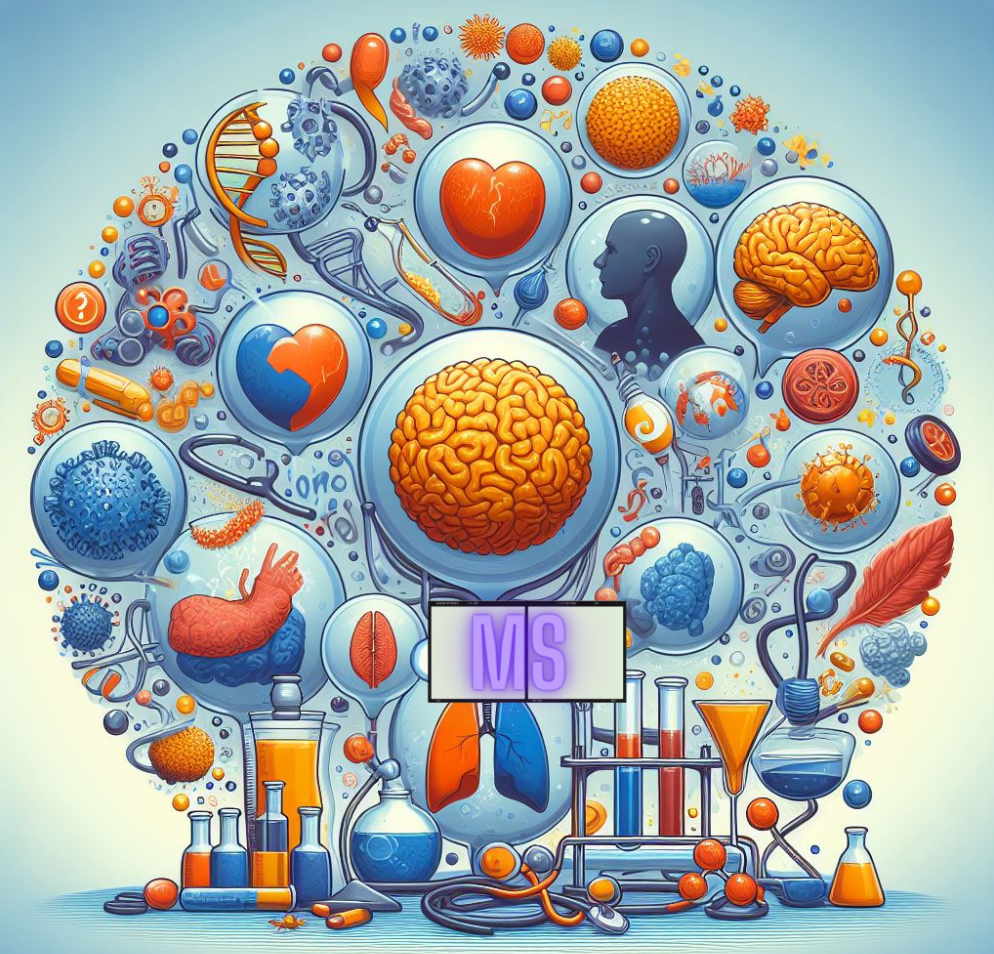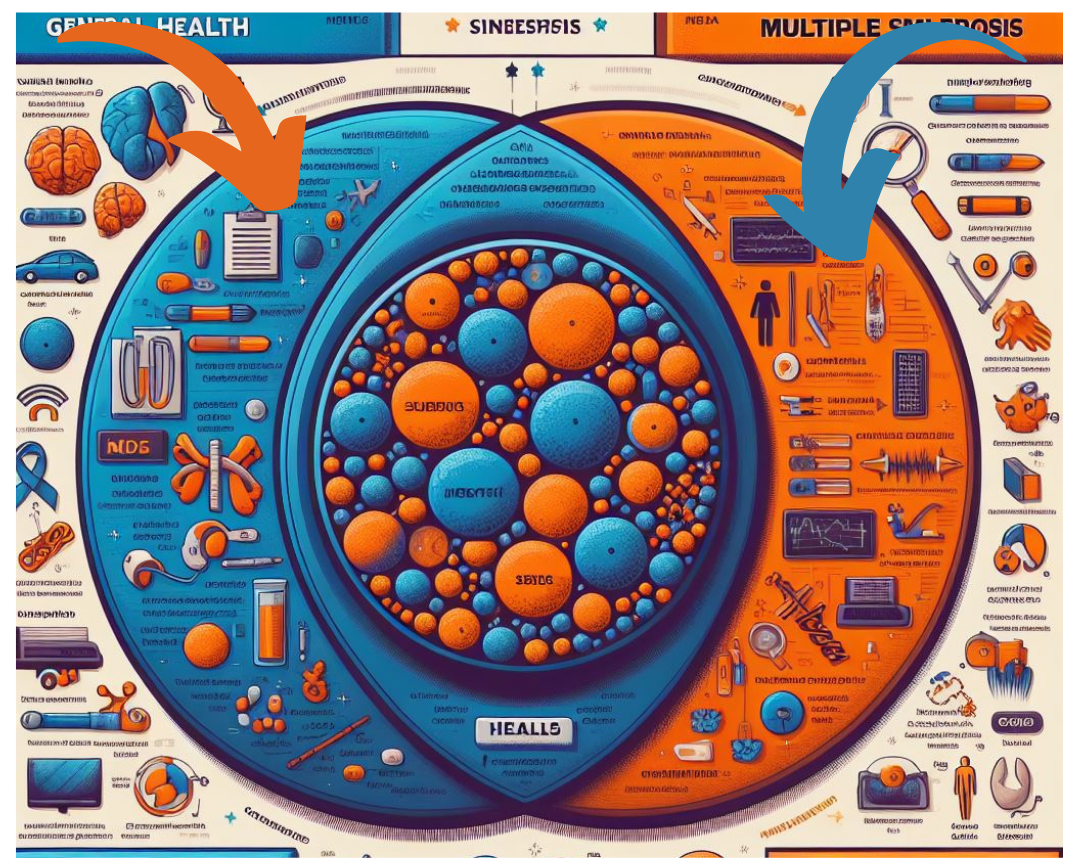The definition of good health

Often, in the midst of good health, we tend to overlook the importance of a healthy lifestyle and nutritious eating habits. We find ourselves rushing to grab fast food, prioritizing speed over nutrition. Physical activity, if any, is often pursued for cosmetic reasons or weight management, rather than genuine well-being. We may become preoccupied with fitting in or pleasing others, neglecting our own needs.

However, it’s when our bodies start to signal distress through the onset of diseases like multiple sclerosis that we begin to truly prioritize self-care. We awaken to our body’s needs and respond with a newfound sense of care and love. Our body acts as a poignant reminder of the attention it deserves, and we embark on a journey towards holistic well-being.
For those with multiple sclerosis, a balanced menu becomes more than just a diet—it becomes a cornerstone of health.
Physical activity transforms into a means of maintaining our body’s vitality while nurturing our mental health becomes synonymous with cultivating thoughtful, purposeful actions.

Think of general health as a complex puzzle with numerous pieces that fit together to create an overall picture of well-being. This includes the interplay between your physical condition, emotional mindset, and social interactions. Each piece is crucial, and missing one can affect the whole.
The journey toward achieving and maintaining good health is a proactive one. It’s about making informed choices that enhance your life quality. Regular exercise is the cornerstone of physical health, just like balanced nutrition fuels your body. And let’s not forget the mind – cultivating mental health is just as important, with practices such as meditation or therapy.

You’re going to find out about how your daily routine, from the food you eat to the amount of sleep you get, leaves a mark on your health status. It’s not just about warding off illness; it’s about thriving. While genetics play a role, a substantial part of your health is shaped by the choices you make every day.
As we proceed to the next section, we’ll explore how a complex disease like Multiple Sclerosis (MS) intersects with this concept of general health. MS can challenge our understanding of health and force us to adjust our perspectives on well-being and lifestyle management.
An Overview of Multiple Sclerosis (MS) – The Basics

I’m going to explain a condition that’s complex and affects many people worldwide: Multiple Sclerosis, commonly referred to as MS. This isn’t just a neurological disorder; it’s a condition that can influence every aspect of daily life.
Multiple Sclerosis is characterized by the immune system incorrectly attacking the protective sheath (myelin) that covers nerve fibres, causing communication issues between the brain and the rest of the body. This process can eventually lead to permanent nerve damage.
You’re going to find out about relapsing-remitting MS, the most common form, which involves clear periods of relapse and recovery. There’s also primary progressive MS, marked by a steady worsening of symptoms without clear relapses and remissions.
Awareness of early signs is critical. Symptoms vary widely and may include problems with vision, muscle weakness, coordination, balance, sensations, and cognitive issues. Each person’s experience with MS is unique, making it a very personal journey.
Early diagnosis can make a big difference in managing Multiple Sclerosis. Healthcare professionals play a pivotal role here, not just in diagnosing MS, but in crafting a management plan that considers the full spectrum of the patient’s needs.
Personal Journey with MS
Allow me to share a personal journey that sheds light on the realities of living with multiple sclerosis. Meet Marija, who, at the age of 26, had just embarked on married life when MS entered the picture.

“When I received the diagnosis of MS, I was completely caught off guard. At the tender age of 26, I had just embarked on the journey of marriage. The disease felt like a shadowy mystery, and I grappled with questions like: What kind of ailment is this? When will its unpredictable occurrences strike again?
The initial days were tough. I experienced double vision and debilitating headaches. The answers I sought were elusive, but one piece of advice remained consistent – I needed to adopt a healthier lifestyle. Regrettably, I didn’t take this advice seriously at first. The thought of it didn’t even cross my mind, I must confess. It was only when I was warned about the potential consequences of negligence that I began to reconsider my choices.
I was fortunate to have unwavering support from my loved ones, yet the question remained: Where to begin? I heeded the counsel of those closest to me and made a significant decision. I returned to university, a pursuit I had paused when I fell in love. The journey wasn’t without its challenges. Sometimes, the letters on the pages seemed to dance before my eyes. My doctor encouraged me to rethink my study habits, suggesting a gradual approach and avoiding exhaustion. I devised a schedule, and remarkably, it worked! After three years of dedication, I can proudly say that each successfully passed exam felt like a therapeutic victory, fueling my
determination.

But that wasn’t the end of my story. The emotional whirlwind at the onset of my illness prompted me to seek an outlet. What better medium than pen and paper to channel my feelings? As my emotional and mental landscape evolved, so did my written work, transforming into a beautiful tale of love and triumph.
During my latest visit to the doctor’s office, I found myself saying somewhat unconsciously, “You know, Doctor, I’ve been reflecting on my journey. If it weren’t for my illness, I might never
have completed my education or penned a novel. And I’m genuinely content.” In the span of four years, I haven’t experienced a single relapse, and I feel remarkably well. I’ve embraced a respect for my body, embraced yoga, maintained a wholesome diet, and supplemented with vitamin D3, hoping to sustain this newfound well-being.”
This story encapsulates the challenges and triumphs faced by individuals dealing with MS, showcasing the strength and resilience that can emerge from such adversity.
Navigating the Intersection – Comparing General Health and MS

General health and Multiple Sclerosis (MS) don’t exist in separate bubbles. When you’re faced with a condition like MS, it becomes a significant part of your overall health picture. MS can touch every aspect of your life, from physical abilities to mental well-being. It’s crucial to understand how this chronic illness can transform the landscape of your daily existence.
If you’re living with MS, you might notice its impact on routines that once felt like second nature. Simple tasks might require more effort or even assistance. Fatigue, one of the most common symptoms, can turn a full day’s plans into an unrealistic goal. This is where a nuanced approach to general health becomes essential. Priority shifts from broad health goals to more personalized strategies that consider the unique challenges MS presents.
Prevention is better than cure, but with MS, it’s all about managing the condition effectively. Physical therapy exercises, for instance, can maintain mobility and delay progression. Meanwhile, a diet high in anti-inflammatory foods and vitamin D3 might help manage symptoms. It’s about making smart tweaks to your lifestyle that acknowledge the presence of MS without allowing it to take the driver’s seat.
Lastly, the importance of a robust support system can’t be understated. MS can be an unpredictable journey, and having a network of healthcare providers, friends, family, and support groups who understand what you’re going through is invaluable. Education, too, plays a vital role – knowing as much as you can about your condition empowers you to make informed decisions about your health.
Towards a Healthier Future – Management and Support for MS

If you’re facing Multiple Sclerosis, remember you’re not alone in this journey. There are many treatment options available that can help manage symptoms and improve quality of life. Disease-modifying therapies, symptomatic treatments, and rehabilitation strategies form the crux of MS management, each tailored to the individual’s needs.
The landscape of MS research is continually evolving. Scientists are tirelessly working on new medications, innovative therapies, and even potential cures. These advancements bring not only hope but also concrete ways to combat the disease more effectively in the future.
Living with Multiple Sclerosis can be demanding, but many people with MS lead active, fulfilling lives by adapting their lifestyle and finding what works best for them. Hearing their stories can be incredibly inspiring and provide practical ideas on how to navigate both the physical and emotional challenges of MS.
Lastly, support is crucial. Whether it’s through local support groups, online forums, or national organizations, connecting with others who understand what you’re going through makes a significant difference. Additionally, these platforms often provide access to valuable resources and the latest information on managing MS.
I really hope that you find this information useful and that it empowers you to take charge of your health. Remember, your journey might be personal, but you don’t have to walk it alone.
Elena
References
Wills, O. et al. (2024). Consensus on lifestyle recommendations for MS brain health. Outlines globally agreed expert strategies to support lifelong brain health in MS through lifestyle changes. sciencedirect.com+2overcomingms.org+2
Rush University (2024). The role of diet and lifestyle in managing multiple sclerosis. Highlights how dietary, exercise, and daily routine changes help slow MS progression and prevent disability. jamanetwork.com+15rush.edu+15overcomingms.org+15
Wikipedia. Multiple sclerosis. Notes the influence of lifestyle factors — including smoking, alcohol, exercise, diet, and vitamin D — on MS prognosis. en.wikipedia.org
Disclaimer
This article is intended for general informational purposes only and should not replace professional medical or nutritional advice. Individual dietary needs for multiple sclerosis can vary widely. Please consult a qualified healthcare provider or registered dietitian before making changes to your diet.
About the Author
Elena is the voice behind MS Experience, where she combines compassion, research, and lived insight to support people navigating life with multiple sclerosis. Her writing aims to nourish both the mind and soul—one thoughtful post at a time. When she’s not writing, you’ll catch her exploring wellness practices, experimenting with nourishing recipes, or unwinding with a good book.


Hey thank you for this great post!
Posts like these or on topics regarding health are very important. I enjoyed reading this and I am sure many others will do too. What you said about people not looking after their health until their body starts to show signs of neglect and weakness is true and should be addressed sooner rather than later.
I myself am guilty of not paying attention to nutrition and what is healthy however your post has certainly wanted me to start focusing on it.
My dad has sclerosis so I guess there is an example of why prioritising health is essential!
Thanks again and have a great day!
Hello,
I’m glad you find out something important for yourself. Yes, all of us should take care of ourselves before it is too late. And remember, everything begins in our mind and with our decisions.
Good luck!